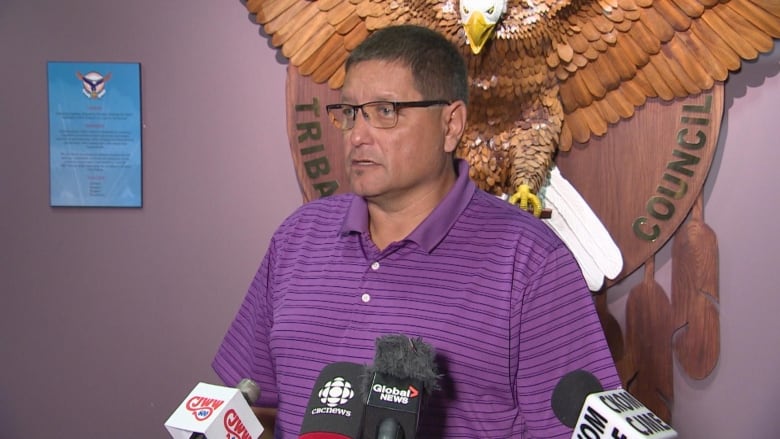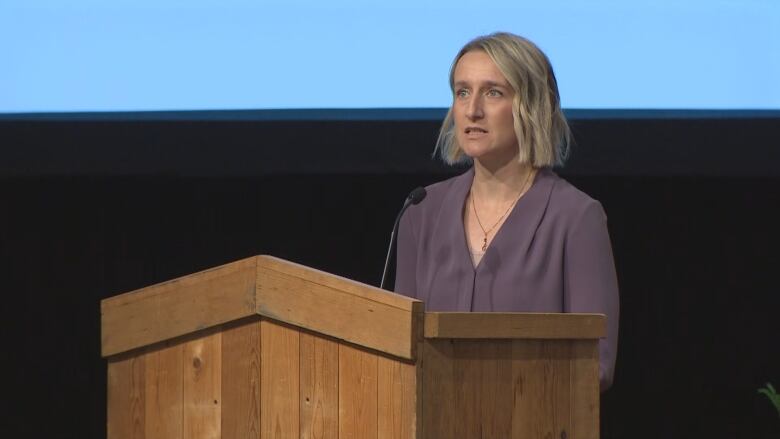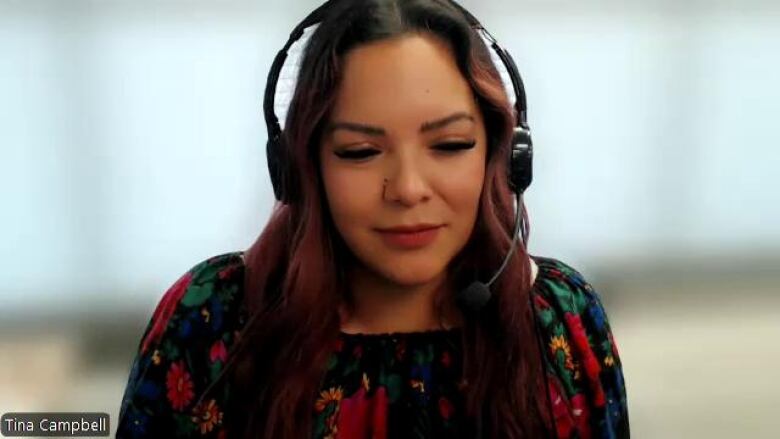Sask. responses to CMA's apology to Indigenous peoples mostly positive, but true effects still unknown
RN says she often comes across Indigenous people who are 'brushed off'

The Canadian Medical Association's apology for the past and present harms the medical profession has caused to First Nation, Inuit and Mtis Peoples is drawing generally positive responses in Saskatchewan.
During a ceremonyWednesday in Victoria, the associationsaid it is "deeply ashamed" and "deeply sorry" for the mistreatment of Indigenous peoples in the medical space.
Saskatoon Tribal Council (STC) Chief Mark Arcand said the apology was necessary.
"My initial thought is it's about damn time, because we see how these systems have treated First Nations people," he said Wednesday.
"Health care is supposed to be there to help you, not abuse you, not hurt you."

The ceremony took place on the traditional territory of the lkin-speaking people of theSonghees and Xwsepsum Nations. It also featured singers, drummers, dancers, musicians and storytellers.
"The racism and discrimination that Indigenous patients and health-care providers face is deplorable," said CMA president Dr. Joss Reimer.
Arcand said it's hard to predict what this apology might mean for the future.
"It's necessary, but is it going to improve the system? I hope it does, but it's hard to say," he said.
Dr. Alika Lafontaine led the CMA last year as the association's first Indigenous president. He said Indigenous and non-Indigenous people need to "lift together so the CMA can move forward with authentic change."
"It's a chapter that we hope First Nations, Inuit and Mtis Peoples can write with us together as we work toward a health system that provides Indigenous Peoples with the right care, at the right time, in the right place, in a good way," said Lafontaine.
"I feel solidarity and empathy. I feel hope that things can be different," he said.
The apology cited specific examples of harms, including:
-
The Indian Hospital system which embedded systemic racism and discrimination in the Canadian health system.
-
Forced and coerced sterilization.
-
Forced medical experimentation on Indigenous children in residential schools, including forced malnourishment.
-
Medical experimentation on Indigenous adults.
-
Child apprehensions.
-
Neglect and abuse.
Arcand pointed specifically to the practice of sterilizing Aboriginal women without their consent.In 2017, the Saskatoon Health Region publicly apologized for past coerced sterilization afterthe release of a 57-page report detailing the practice.
"This is wrong, this is inhumane," Arcand said. "We don't do this to people. So I think coming together and voicing our concerns about changing the system will improve health care for everyone."
Tina Campbell is a registered nurse and tuberculosis advisor at the Northern Inter-Tribal Health Authority, an organization thatserves 33 First Nations communities with a combined population of more than 55,000.
Campbell said the apology is a "great step forward" toward reconciliation, but that there still needs to bemore education for health-care providers about the historical treatment of Indigenous people in Canada.
"They want answers and they want to be there," she said.
"So thinking about people accessing care and not being treated fairly, or being sent away, or not being assessed the way they should be, it really breaks my heart because it contributes to that ongoing mistrust."

She said it's important to recognize reserve systems were established to isolate and segregateIndigenous people, and those inequities still contribute to the overall health of communities today.
Campbell saidshe often comes across Indigenous people who are denied access to health care.
"They're faced with discrimination," she said. "They experience longer wait times, sometimes they're brushed off."
Campbell said her grandmother and aunt were sent to tuberculosis sanatoriums, facilities where some survivors say they experienced psychological and physical abuse, and lost the ability to speak their own language.Campbell said the "horrific" recollections make trusting the system difficult.
"You have that fear. And if somebody tells you that story, you go to health care and you're like, 'OK, is this going to happen to me?'"
Campbell said many people in remote communities still have to be sent to city centres because of a lack of resources.
"Our organization works on trying to bring services to them in their communities so we don't have to travel far and be away and have that re-traumatization occur."
With files from Karin Larsen













_(720p).jpg)


 OFFICIAL HD MUSIC VIDEO.jpg)
.jpg)



























































































